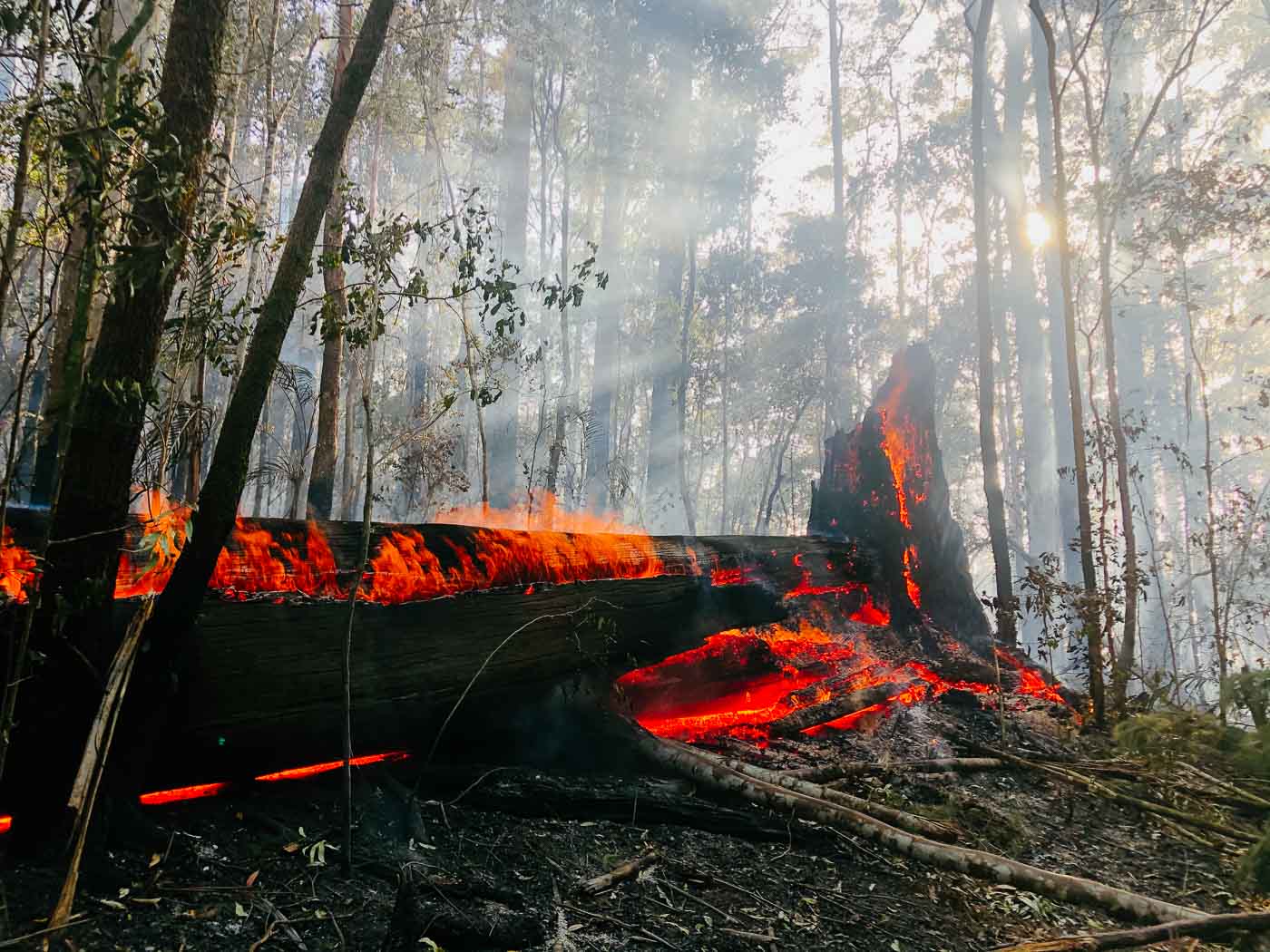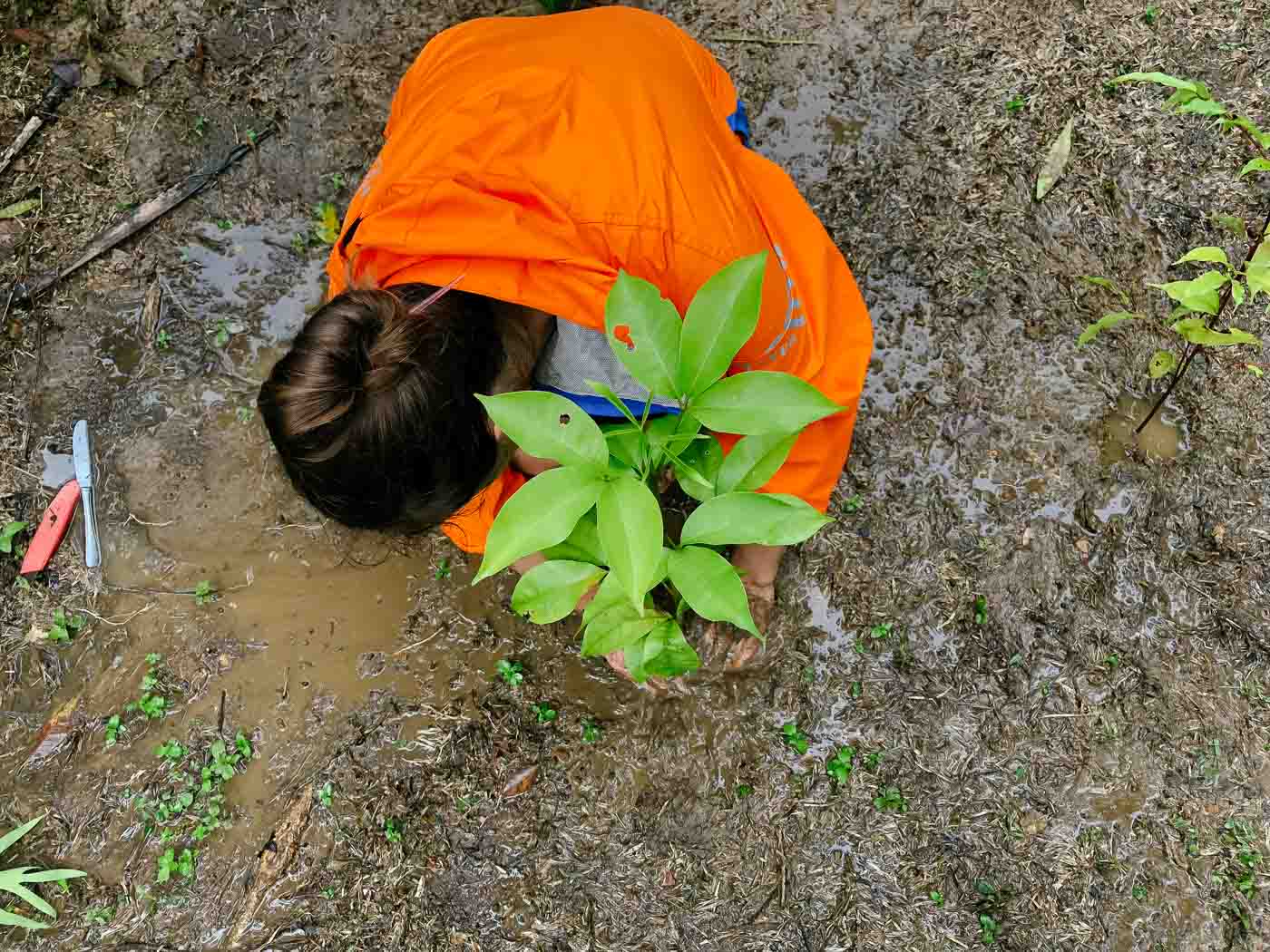Extreme climatic events are, by definition, weather events that occur very rarely. Extreme heat waves, droughts or hurricanes were once so rare that scientists named a whole category after them to underline their unique destructive force.
But as climate scientist Sarah Perkins told me in an interview for our second episode of Beyond Trees, extreme climatic events once thought of as once-in-a-century are increasing in number, worldwide.
With extreme climate events, comes an unprecedented challenge to life on earth as we have known it so far. While the coronavirus crisis is currently the sole focus in the general media, the reality is that the climate crisis won’t wait and, in fact, might even be worse as governments feel less pressure to act against it.
The example of Australia: are we ready for the next bushfires?
While technically the devastating bushfires in Australia were triggered by elements mostly out of human control, their unprecedented magnitude did not come out of nowhere.
In January, Ecosia users funded 26,446 trees after the bushfires to help restore part of the damage they left behind. But these trees will only make a difference if we make broader changes to an economic and political system that is already tumbling under the threat of climate change.
A combination of local weather conditions and global climate patterns coincided and caused the catastrophe. But on a cooler planet, these causes would have balanced each other out.
Let’s take a concrete example.

Maximo Bottaro is a scientist and the CEO of ReforestNow, Ecosia’s tree planting partner in Australia. He underlined to me that it's a proven fact that forests attract rainfall. But since the colonization of Australia in the 18th century, the country has lost over 40% of its forests as a result of extensive coal mining and cattle holding, with much of the remaining vegetation being highly fragmented.
Were it not for devastating, human-caused deforestation, bushfires that coincide with longer heat waves would be kept in check by healthy rainforests, which cause rainfall and are usually too humid to burn.
But with a depleted soil across the country and remaining forests in a degraded state, the fires had free reign and became the worst in Australia’s history.
Why Australia’s fires impact the entire world
The Australian bushfires were consistent with years of trends, studies and climate modelling – facts known to both Australian and world politicians for decades.
Australia's bushfires were not just about Australia. What happened there is merely a painful warning of what is yet to come globally.
The connection between local climate events and a downward spiral that eventually destabilizes entire ecosystems is what scientists call “systems”. As the environment collapses, our societies, too, tumble.
In the next decades a warming planet is expected to:
- Reduce global economic output by 25%.
- Decline yields by about 10% for every degree of warming.
- Force about 140 million people across the globe to migrate by 2050 (that’s a hundred times more than Europe’s Syrian “crisis” of 2011).
- Potentially increase armed conflicts by two if we reach a global warming of more than 4 degrees.*
And that’s still an incomplete list. Climate change affects other things too, like the number of wildfires or floods, which in turn increase the amount of pulmonary diseases or the quality of our water, creating conflicts over water resources, too.

The good news
The good news is: we can actually change those projections. They’re not facts, yet.
In his film 2040, director Damon Gameau, whom I interviewed for our newest episode of Beyond Trees, has proven that we already have all the technologies we need to both adapt to climate change and to re-design our economic systems to exist within our planetary boundaries.
Tree planting is one of those natural technologies that could help reestablish the natural balance of ecosystems across the planet. When done right, tree planting not only helps the environment, but local communities as well, which is how we make sure Ecosia’s trees survive.
What you can do
No tree planting in the world can compensate for a system that is bound to exploit nature.
We need to make global, structural changes to anything from our food production to our political institutions.
We still have a say today in how the world ought to look tomorrow. In the face of the Australian bushfires, we need to ask ourselves: when temperatures rise, what kind of world do we want to live in?
Watch and share our documentary to spread the word.
If you are wondering what else you can do other than planting trees through Ecosia, you can sign up to this platform built by Damon Gameau in the context of his 2040 film. After a brief questionnaire on your situation, you will be given a couple of ideas on how you can best advocate for structural changes. It only takes about 5 minutes!
However you decide to act against the climate crisis, don’t forget to take care of yourself and read our tips on dealing with climate anxiety.
* The Uninhabitable Earth, Life After Warming, David Wallace-Wells, Tim Duggan Books (2019)
